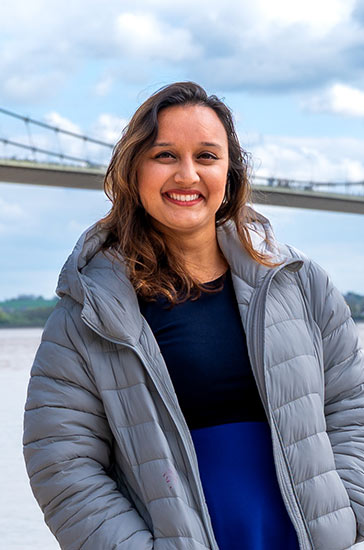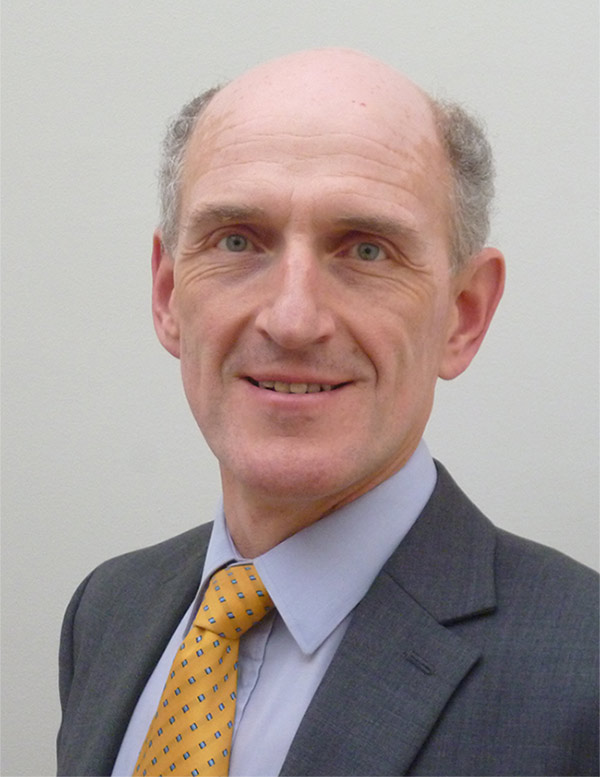

Practising in an under-doctored area

Dr Richard Roope’s curiosity about the human body started from the age of three, his mother tells him. By 14, he had decided that he would go into medicine. Studying at Cambridge University and The (Royal) London, it was the diversity he loved.
“It was fascinating and really just confirmed that general practice was the place to be, because you get that full range of illness, sociology, and demography.”
An increasing rarity having worked in the same practice for his whole career, he joined the Locks Road Surgery in Hampshire in 1991, which subsequently moved to a new surgery building in nearby Whiteley. Continuity is vital for general practice he believes, with one of his favourite moments doing a baby check 25 years after he had done the same for the mother.
Along the way he developed side interests in rheumatology, occupational medicine and some management as part of the primary care commissioning group. When they were restructured into Primary Care Trusts (PCTs) he was asked to take on the cancer lead role. It would become a key part of his career, ultimately leading to his roles as clinical champion for cancer for the Royal College of GPs and Cancer Research UK.
In those early days the focus was on raising awareness of cancer among primary care colleagues but also to the wider NHS that GPs were a crucial part of cancer care. The two-week wait referral pathway had just come in and NICE guidelines would follow. “That has really been the common thread through my cancer leadership career - being the window and the conduit of primary care into the cancer world and the cancer world into primary care.”
When he qualified as a GP everyone pretty much saw cancer as a death sentence. “That has just completely changed and we've now got to the stage where over 50% of those diagnosed with cancer will survive beyond 10 years. There is also the slightly scary phenomenon that there are more and more patients living long enough to get their second cancer.”
A personal standout moment was representing the RCGP in Parliament in front of the Health Select Committee, being cross-examined by Jeremy Hunt. He did not find it too daunting he admits. “They're not there to trap you. They're there to be informed and learn from an expert.”
The urgent care pathway is a real success story he says, and although there was a certain amount of catch up after Covid-19, that has now happened and some. “What general practice has been doing, despite the workforce challenges, is just amazing. We are diagnosing a higher proportion of people at an early stage.”
One of his top tips for time pressured GPs, trying to help people make lifestyle changes, is to adopt the ‘very brief advice’ approach. “It’s basically ask, advise, act, and it takes 15 to 30 seconds to do,” he explains. There’s no judgement or telling off, is essentially signposting and is the complete opposite of what he was taught at medical school but it’s very effective, he adds.
It is another good news story that since 2011, UK smoking rates have dropped from 21% to 12%, he points out. “It’s just phenomenal and a lot of that has been mediated through primary care.”
The success was due to a multi-pronged approach – that included the public smoking ban – that can be emulated for other issues, as can be seen by the sugar tax and minimum unit pricing in Scotland. “It’s predicted, that probably sometime in the 2040s, overweight and obesity will then have more attributable cases of cancer than smoking. The tipping point was that everyone saw the tobacco industry as pariahs, and we haven’t got there with big food yet.” A ban on commercial sunbeds is another approach that Government could adopt as has been seen in Australia, he says.
Beyond cancer, one of the most profound changes Dr Roope has seen in his career is the rise of patient access to online health information which, while empowering, has also led to increased consultations from the “worried well”. The wealth of misinformation and health anxiety that it generates can be challenging for GPs, he says. “It's fantastic that more information is out there, but it's unfiltered.”
Retiring from his practice in 2021, he still works in his local Rapid Diagnostic Centre and remains active in shaping national cancer policy, including advising through the RCGP on the UK’s new 10-year cancer plan.
Perhaps due to his enthusiasm for medicine, two of his three daughters have become doctors, the oldest a GP in Nottingham and the youngest training to be an orthopaedic surgeon. Could it be that she was influenced by a bad leg break he sustained skiing – the only time in his whole career he took sick leave, he wonders. His middle daughter is a business development executive in a law firm, taking after his wife who trained as a solicitor.
“I was completely neutral, but I suspect they caught my enthusiasm and passion, because general practice is just the best career.”
Thank you for your feedback. Your response will help improve this page.